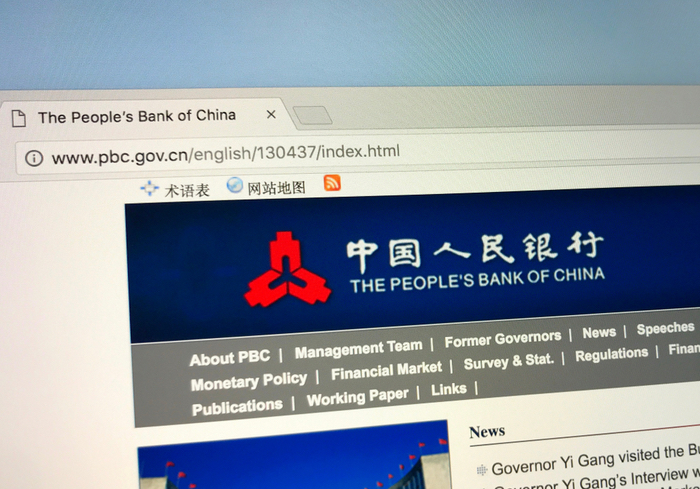People’s Bank Of China Plans To Manage Money Supply Growth

To head off financial risks, the People’s Bank of China (PBOC) plans to manage growth of the money supply. Its remarks could be seen as a warning against a stimulus approach to an economy that is slowing along with a trade war, Financial Times reported.
Through its yearly financial stability report, the PBOC said, “Prudent monetary policy will remain neutral, (we will) keep the master gate of money supply under control, and maintain reasonable expansion of credit and aggregate social financing.”
At the same time, the bank said that tariffs by the United States could take away between 0.2 and 0.5 percentage points of gross domestic product (GDP) growth, according to an analysis on the part of “international investment banks.” In terms of the trade war, the bank also said that “direct impact on China’s economy is limited, but we must pay attention to the impact on investor sentiment.”
The news comes as the PBOC cut its mandate for cash reserves that lenders must hold. The offshoot is that such a move, which trims the reserve ratio, frees up capital in the system, which can then be used in commerce and in the extension of credit. The PBOC’s cut to the reserve ratio requirement — the fourth such cut in a year, as Bloomberg noted — is an effort to “shore up a faltering domestic economy amid a worsening trade war.”
The cut, which brings the reserve ratio to 14.5 percent, will be effective from Oct. 15 onward, and shaves the required reserve ratio by a percentage point, releasing as much as ¥1.2 trillion (US$175 billion) into the economy. Of that yuan, PBOC said that as much as ¥450 billion has been earmarked to repay medium-term funding facilities that are maturing. The relaxing of the ratio is germane to larger commercial banks, city commercial banks and foreign banks, among others.